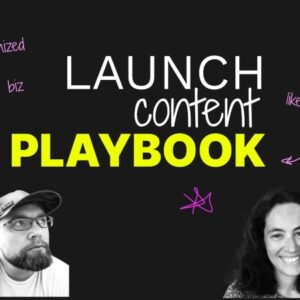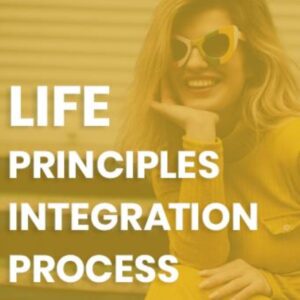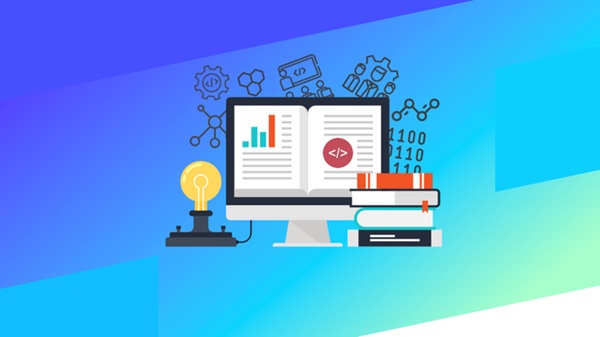Master the Coding Interview – Data Structures + Algorithms
$199.00 Original price was: $199.00.$29.00Current price is: $29.00.
- Delivery: You Will Receive A Receipt With Download Link Through Email.
- If you need more proof ofcourse, feel free to chat with me!

Description
Table of Contents
ToggleThis article delves into the world of leetcode’s interview crash course data structures and algorithms, exploring resources like Zero To Mastery’s offering to help aspiring tech professionals ace their coding interviews and land high-paying jobs.
Leetcode’s Interview Crash Course Data Structures and Algorithms

The realm of leetcode’s interview crash course data structures and algorithms is vast and ever-evolving. For those aiming to conquer technical interviews and secure coveted positions in the tech industry, mastering these concepts is paramount. LeetCode, the well-known platform, offers a plethora of problems designed to hone skills in data structures and algorithms, serving as a crucial training ground for aspiring software engineers.
The Importance of a Structured Interview Preparation
The sheer volume of content available on leetcode’s interview crash course data structures and algorithms can be overwhelming without a structured path. Many find themselves lost in the sea of problems, unsure where to begin or how to efficiently improve. A structured approach, akin to enrolling in a well-designed course, is crucial for maximizing learning and retention. A high-quality course fills in the gaps of knowledge, providing a comprehensive understanding of fundamental concepts, along with practical exercises and guidance.
The “Master the Coding Interview: Data Structures + Algorithms” course offered by Zero To Mastery (ZTM) Academy provides a structured alternative. According to the course documentation, the advantage of ZTM’s coding interview bootcamp lies in its dual focus. This course equips participants with technical and non-technical skills needed to thrive in competitive tech interviews.
Key Concepts and Their Application
A robust understanding of leetcode’s interview crash course data structures and algorithms isn’t just about memorizing formulas; it’s about understanding how these concepts apply to real-world problems. Data structures, such as arrays, linked lists, trees, and graphs, provide efficient ways to organize and store data, enabling faster and more scalable solutions. Algorithms, like sorting, searching, and graph traversal, offer step-by-step procedures for solving specific problems.
Consider the task of searching for a specific element within a sorted list. While a simple linear search would work, its efficiency degrades significantly as the list grows larger. A binary search algorithm, leveraging the sorted nature of the data, can locate the element much more quickly, significantly improving performance. This illustrates the power of choosing the right algorithm for the job.
Master The Coding Interview: Data Structures Algorithms
The phrase “master the coding interview: data structures algorithms” encapsulates the journey many aspiring software engineers undertake. It’s a journey filled with challenges, demanding dedication, and a strategic approach to learning. Success in coding interviews hinges not just on theoretical knowledge, but also on the ability to apply that knowledge to solve problems under pressure.
Technical Depth vs. Practical Application
While theoretical knowledge of master the coding interview: data structures algorithms is essential, it’s equally vital to develop practical application skills. Many candidates struggle to translate their understanding of data structures and algorithms into working code during the interview. Practice, therefore, serves as the cornerstone of success. The more problems you solve, the more comfortable you become with applying different techniques and identifying optimal solutions.
The Zero to Mastery course emphasizes problem-solving and practical application of data structures and algorithms. Andrei Neagoie, the instructor who has sat on both sides of the interview table, focuses on helping students develop the critical thinking and problem-solving skills necessary to succeed in technical interviews.
Non-Technical Skills: The Differentiator
In the context of “master the coding interview: data structures algorithms,” focusing solely on technical skills would be a mistake. Non-technical skills, such as communication, problem-solving approach, and the ability to articulate your thought process, play a crucial role. Interviewers assess not just your technical aptitude but also your ability to collaborate, work within a team, and handle pressure.
The master the coding interview: data structures algorithms offering from ZTM course uniquely addresses the importance of soft skills in the job search. It covers topics like how to answer interview questions effectively, negotiate salary, and get a raise. These skills are often overlooked but are critical for career advancement.
Data Structures bootcam[p
A “data structures bootcam[p” is an intensive training program designed to accelerate learning and skill development in data structures and algorithms. These bootcamps typically compress months of traditional learning into a shorter timeframe, demanding significant commitment and focused effort from participants.
Advantages of Immersive Learning
The immersive nature of a “data structures bootcam[p” offers several advantages. It allows for rapid skill acquisition, providing a condensed learning environment where participants are constantly challenged to apply their knowledge. The structured curriculum and concentrated focus contribute to higher retention rates and a deeper understanding of the subject matter.
As the ZTM Academy documentation points out, the curriculum is meticulously structured with technical and non-technical elements. With 270+ lessons spanning 21 hours, this immersive approach is designed for effective learning.
Choosing the Right Bootcamp
Selecting the right “data structures bootcam[p” is crucial for maximizing effectiveness. Factors to consider include the curriculum, the instructor’s expertise, the level of support provided, and the learning format. A well-designed bootcamp should cover a wide range of data structures and algorithms, offer hands-on practice, and provide access to mentors and resources for support.
The “Master the Coding Interview” course offered by ZTM Academy touts its structure for effective learning and practical application. Students average 40 days to complete this course. Access to the exclusive community on Discord, coupled with the instructor’s personal philosophy, adds value to the learning experience.
Interview Master 100
The term “interview master 100” likely refers to a curated list of 100 essential interview questions covering key data structures and algorithms concepts. These lists serve as a valuable resource for interview preparation, providing a targeted set of problems to practice and master.
Benefits of a Focused Question Set
Focusing on a curated list like “interview master 100” offers several benefits. It allows for efficient use of study time by concentrating on the most frequently asked questions. It also provides a comprehensive overview of the core concepts tested in technical interviews, ensuring that candidates are well-prepared for a wide range of questions.
Practicing these popular questions allows candidates to become familiar with common problem-solving patterns and techniques. This familiarity can translate into increased confidence and improved performance during the actual interview.
Beyond Memorization: Understanding the Underlying Principles
While practicing the “interview master 100” questions is helpful, it’s important to go beyond mere memorization. Understanding the underlying principles and concepts behind each question is crucial for adapting to variations and solving novel problems. Interviewers are often more interested in your problem-solving process than the specific answer.
Ultimately, the goal of working with the interview master 100 isn’t just to rote-learn solutions, but to gain a deeper understanding of data structures and algorithms, preparing you to tackle any interview question. A course such as the ZTM one can help you build this deeper understanding.
Algorithms and Data Structures Course Online
An “algorithms and data structures course online” provides a flexible and accessible way to learn these fundamental computer science concepts. Online courses offer a wide range of options, catering to different learning styles, skill levels, and budgets. They often include video lectures, interactive exercises, quizzes, and coding projects to reinforce learning.
Flexibility and Accessibility
The key advantage of an “algorithms and data structures course online” is its flexibility. Learners can study at their own pace, on their own schedule, and from anywhere with an internet connection. This makes online learning a convenient option for busy professionals, students, and anyone who wants to improve their skills without disrupting their current commitments.
Accessibility is also a significant benefit. Online courses often have lower tuition fees compared to traditional in-person programs, making them a more affordable option for many learners.
Choosing the Right Online Course
With so many algorithms and data structures course online options available, choosing the right one can be challenging. It’s important to consider your learning style, skill level, and goals. Look for courses that offer a well-structured curriculum, engaging content, hands-on practice, and access to instructors or mentors for support.
The Zero to Mastery offering specifically targets aspiring tech professionals. As stated in the documentation, it aims to level the playing field for those with and without a Computer Science background. This is very important when considering your goals and skill level.
Master Coding
To “master coding” is a continuous journey of learning, practice, and refinement. It’s about developing a deep understanding of programming concepts, acquiring proficiency in various languages and technologies, and cultivating the ability to solve complex problems through code.
The Importance of Fundamentals
While staying up-to-date with the latest technologies is important, the foundation of “master coding” lies in a solid understanding of fundamental concepts. This includes data structures, algorithms, object-oriented programming, and software design principles. A strong grasp of these fundamentals allows you to quickly learn new languages and technologies and adapt to the ever-changing landscape of the software industry.
It is highlighted the ZTM is described as, at its core, really getting two courses in one. One of the course’s goals is technical proficiency. A Computer Science crash course covering data structures, algorithms, and Big-O notation, is described as aiming to bring students on the same level as CS grads.
Beyond Technical Skills: The Art of Problem Solving
Master coding encompasses more than just technical skills. It also involves developing strong problem-solving abilities. This includes the ability to analyze complex problems, break them down into smaller, manageable tasks, design efficient solutions, and implement those solutions in code.
The best coders are not necessarily those who know the most programming languages, but those who can effectively use the tools at their disposal to solve problems creatively and efficiently. Andrei Neagoie emphasizes his belief in the transformative power of the skills taught in the “Master the Coding Interview” course, highlighting how “this skill can really change the course of your career.”
Interview Questions For Data Structures and Algorithms
“Interview questions for data structures and algorithms” are designed to assess a candidate’s understanding of these fundamental computer science concepts and their ability to apply them to solve problems. These questions can range from theoretical discussions to coding challenges, testing both knowledge and practical skills.
Common Question Types
Common types of “interview questions for data structures and algorithms” include questions about the time and space complexity of different algorithms, the properties of various data structures, and the best data structure or algorithm for a given task. Coding challenges typically involve implementing data structures or algorithms from scratch, or solving specific problems using these concepts.
Examples include questions about sorting algorithms (e.g., “Explain the difference between quicksort and mergesort”), data structure implementations (e.g., “Implement a stack using an array”), and algorithmic problem-solving (e.g., “Find the shortest path in a graph”).
Preparing for Data Structures and Algorithms Questions
Preparing for “interview questions for data structures and algorithms” requires a combination of theoretical study and practical practice. Start by reviewing the fundamentals of data structures and algorithms, focusing on common data structures like arrays, linked lists, trees, and graphs, and common algorithms like sorting, searching, and graph traversal.
Then, practice solving coding problems on platforms like LeetCode, HackerRank, and Codewars. Focus on understanding the underlying principles and choosing the right data structure and algorithm for each problem. As you progress, try to solve problems under time constraints to simulate the pressure of a real interview.
Udacity Data Structures and Algorithms
“Udacity data structures and algorithms” refers to the courses and learning resources offered by Udacity on the topics of data structures and algorithms. These courses are designed to provide learners with a comprehensive understanding of these fundamental computer science concepts and equip them with the skills to solve complex problems using code.
Udacity’s Approach to Learning
Udacity’s “udacity data structures and algorithms” courses typically follow a project-based learning approach. This means that learners learn by doing, working on real-world projects that require them to apply their knowledge of data structures and algorithms to solve practical problems. This hands-on approach helps learners develop a deeper understanding of the concepts and improve their problem-solving skills.
Udacity also emphasizes personalized learning, providing learners with customized feedback and support to help them achieve their goals. Their courses often include mentorship programs and career coaching to help learners prepare for jobs in the tech industry.
Comparing Udacity to Other Resources
When considering “udacity data structures and algorithms” compared to other online resources, it’s important to consider factors like price, curriculum, learning style, and level of support. Udacity’s courses tend to be more expensive than some other online options, but they often offer a higher level of support and a more structured learning experience.
Ultimately, the best choice depends on your individual learning style, goals, and budget. If you prefer a structured learning environment with personalized support and a focus on project-based learning, Udacity’s courses may be a good fit. If you prefer a more flexible and affordable option, other online resources may be more suitable.
Coding Interview Course
A “coding interview course” is designed to equip aspiring software engineers with the knowledge and skills necessary to excel in technical interviews. These courses typically cover a range of topics, including data structures, algorithms, problem-solving techniques, and interview strategies.
What to Look for in a Coding Interview Course
When choosing a “coding interview course“, consider the following factors:The curriculum should cover a comprehensive range of topics, including data structures, algorithms, and problem-solving techniques. The instructor should have extensive experience in the tech industry and a proven track record of helping students succeed in coding interviews.
The course should include plenty of hands-on practice, such as coding challenges, mock interviews, and project-based assignments. The course should provide access to mentors and resources for support, such as online forums, study groups, and career coaching.
Benefits of Taking a Coding Interview Course
The benefits of taking a “coding interview course” are many, including improved technical skills, increased confidence, and better job prospects. These courses can help you learn the fundamental concepts of computer science, improve your problem-solving abilities, and develop effective interview strategies.
As stated in the briefing document from the ZTM Academy, the course is explicitly inclusive. The materials are presented in such a way that will meet the the needs of those with and without a Computer Science background.
Dsa Crash Course
A “dsa crash course” is a condensed and intensive program designed to provide a rapid introduction to data structures and algorithms (DSA). It’s typically aimed at individuals with some prior programming experience who want to quickly get up to speed on these fundamental concepts.
What to Expect from a DSA Crash Course
A “dsa crash course” would usually cover the essential data structures, such as arrays, linked lists, stacks, queues, trees, and graphs, and core algorithms, including sorting, searching, and graph traversal. The focus is on understanding the basic principles and implementing these concepts in code. Due to the condensed nature, a crash course frequently sacrifices depth for breadth.
The Zero to Mastery course is 21 hours over 270 courses. This is considered a sprint for a coding interview, but it is more in-depth when compared to a basic crash course on DSA.
When to Consider a DSA Crash Course
A “dsa crash course” can be a good option if you have limited time and need to quickly learn the basics of DSA. For instance, you might consider this if you have a coding interview coming up or need to use DSA concepts in a project at work. It can also be a useful way to refresh your knowledge of DSA if you haven’t used these concepts in a while.
However, a crash course is not a substitute for a more in-depth study of DSA. If you want to truly master these concepts, you’ll need to dedicate more time to learning and practice.
Coding Interview Prep Course
A “coding interview prep course” is a specialized program designed to help aspiring software engineers prepare for technical interviews at tech companies. These courses typically cover a range of topics, including data structures, algorithms, problem-solving techniques, and interview strategies.
Key Components of a Coding Interview Prep Course
A comprehensive “coding interview prep course” should include the following components:A thorough review of data structures and algorithms, covering the most commonly used data structures and algorithms in coding interviews. Practice solving coding problems on platforms like LeetCode, HackerRank, and Codewars.
Mock interviews with experienced engineers to simulate the interview experience and provide feedback. Guidance on interview strategies, such as how to approach different types of questions, how to communicate your thought process, and how to handle stress.
Choosing the Right Prep Course
With so many “coding interview prep course” options available, choosing the right one can be challenging. Consider the following factors:The instructor’s experience and credentials. The curriculum’s comprehensiveness and relevance. The amount of hands-on practice provided
The level of support and mentorship offered. The course’s cost and payment options. The ZTM course has a senior Developer and Programmer with real-world experience. It offers a unique perspective because he has been both the interviewee and interviewer at top companies in Silicon Valley and Toronto.
Data Structures and Algorithms Udacity
“Data structures and algorithms udacity” refers to the courses offered by Udacity on the topics of data structures and algorithms (DSA). These courses are designed to provide learners with a comprehensive understanding of these critical computer science concepts, focusing on real-world application and practicality.
Blending Theory with Practice
When it comes to “data structures and algorithms udacity,” a standout element of Udacity’s approach often revolves around blending theoretical knowledge with hands-on practice. Students aren’t just lectured on algorithms; they’re challenged to apply them in projects that mimic real-world coding scenarios. This approach not only solidifies understanding but also builds confidence in tackling complex coding challenges. This approach is similar to that the ZTM Academy course espouses.
This emphasis on practical applications distinguishes Udacity’s approach from more theoretical courses. For students who learn best by doing and seeing how concepts translate into functioning programs, the blended approach can be highly effective.
Structured Learning Paths
Udacity excels in offering structured learning paths—a curriculum designed to guide students from fundamental concepts to more advanced topics in a logical, progressive sequence. When examining “data structures and algorithms udacity,” these paths include everything from foundational courses suitable for beginners to specialization options for those seeking deeper expertise.
Such structure is vital for learners who may feel overwhelmed by the breadth of DSA topics. Udacity’s methodical approach can promote clearer understanding and more efficient learning.
Mastering Data Structures
“Mastering data structures” isn’t merely about learning definitions but understanding the nuances of each structure, its advantages and disadvantages, and how it performs under different conditions. This holistic understanding enables a programmer to select the most efficient solution for any given problem.
Performance and Efficiency
Central to “mastering data structures” is an understanding of how each structure performs concerning time and space complexity. For instance, understanding when to use a hash table instead of an array involves considering factors like search speed versus memory usage. In essence, one should understand Big O notations to better prepare for intervews.
This depth of knowledge goes beyond basic implementation—it involves knowing when and why a particular data structure is superior in specific use cases.
Practical Application and Problem Solving
Mastering data structures goes beyond theory; it requires practical application. The more problems you solve, the better you understand how different data structures can be combined and optimized. The briefing document from ZTM notes that the course is structured for effective learning and practical application. Their course has exercises, video lectures and access to a vibrant online community.
Engaging with real-world coding challenges and understanding how to adapt data structures to novel situations is the hallmark of true mastery.
Data Structures Mooc
A “data structures mooc” (Massive Open Online Course) is a course on data structures offered through an open online platform. MOOCs provide accessible and often affordable learning opportunities for anyone seeking to enhance their knowledge in computer science.
Inclusivity and Global Reach
Accessibility stands as one of the most compelling virtues of a “data structures mooc.” This learning modality democratizes education, extending opportunities to individuals around the globe, circumventing traditional barriers such as geographical constraints or exorbitant tuition fees. Given its inclusivity, a well-designed data structures MOOC can cater to a diverse student body, integrating students of varying backgrounds and skill levels into the fold. This inclusivity underscores the essence of community learning, providing a collaborative ecosystem where knowledge is shared, and intellectual horizons are broadened.
This is particularly valuable, as it means learners can reskill and upskill at their convenience, fitting coursework into busy schedules and other life commitments without the need to attend costly in-person classes.
Structure and Engagement
The success of a “data structures mooc” hinges greatly on its structure and capacity to foster engagement among students. Effective MOOCs often include video lessons, interactive quizzes, coding assignments, and discussion forums. These elements are intertwined to keep students motivated and to ensure that they acquire a deep understanding of the material.
Engagement is not limited to content consumption; it extends to community interaction. Active forums, where students can share ideas, seek solutions to problems, and receive feedback, are essential. Instructors and teaching assistants regularly engaging in these forums can greatly enhance the learning experience, providing guidance and clarifying any uncertainties.
Conclusion
Leetcode’s interview crash course data structures and algorithms, mastering the concepts, and applying them strategically are key to success in the competitive tech industry job market. Resources like Zero To Mastery’s bootcamp, with its dual focus on technical and non-technical skills, instructor credibility, and supportive community, can provide a structured and effective path to achieving career goals. This success isn’t just about memorization, but about real-world application in solving complex problems.
Sales Page:_https://zerotomastery.io/courses/learn-data-structures-and-algorithms
Related products
-
Sale!

[GroupBuy] Rob Lennon and Erica Schneider – The Launch Content Playbook
$449.00Original price was: $449.00.$59.00Current price is: $59.00. -
Sale!

Dan Petty – Design Full-Time Bundle
$350.00Original price was: $350.00.$14.00Current price is: $14.00. -
Sale!

SMB – DNA Of Successful Trading
$5,000.00Original price was: $5,000.00.$49.00Current price is: $49.00. -
Sale!

[GroupBuy] Centerpointe – Life Principles Integration Process
$239.00Original price was: $239.00.$99.00Current price is: $99.00.

Reviews
There are no reviews yet.